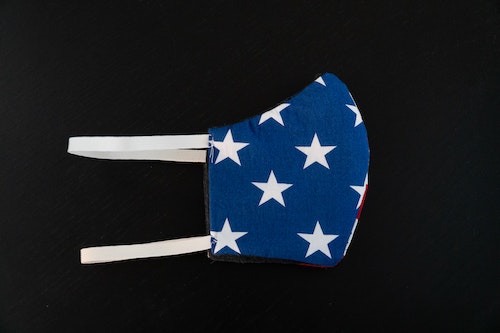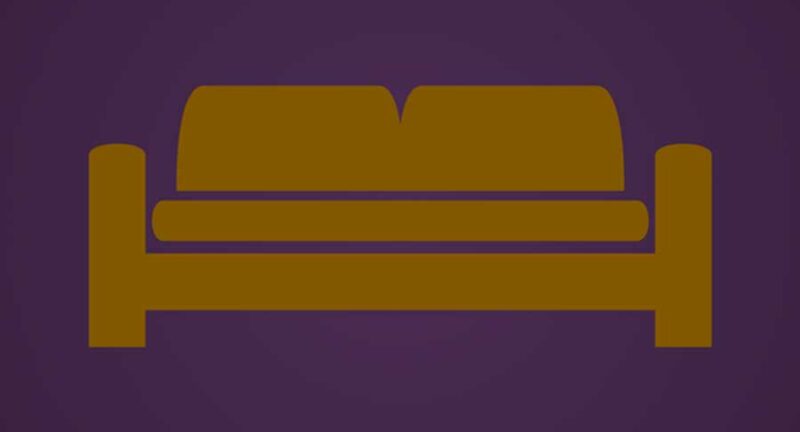
A New York Psychologist Shares 18 Ways to Overcome Mask Anxiety
During this unique time we’ve had to adjust to life behind a face mask. The world outside your window has changed, which necessitates a shift in the way you protect our physical and mental health.
While casual use of a mask in open spaces is generally easier to manage, many of us are experiencing uncomfortable levels of anxiety, even panic, while wearing a mask around others, especially as we transition toward slightly increased exposure to more people and places.
Uncertain times like these demand increased confidence in our physical and psychological protection as we encounter real or imagined danger. Below you’ll find 18 great tips for overcoming mask anxiety.
18 Ways to Reduce Mask Anxiety
1. Take your self-talk to the next level.
Remind yourself 20 times during each outdoor journey that you’re going to be ok. Literally, say to yourself. “No matter what happens, I’m going to be ok.” This self-talk may boost your immune system by giving you an enhanced sense of control during this strange time.
2. Wear your mask at home for short periods of time.
Let the mask feel like it can be a part of you. Dance with your mask. Listen to music. Take selfies. Do whatever makes the mask feel like your mask is a part of you.
3. Remind yourself of your free will to choose.
If your anxiety spikes during a mask-wearing outing, keep telling yourself different choices you’re making in real time. Say, “I choose to…” For example, if you’re about to turn right on as you approach a perpendicular street, tell yourself, “I choose to turn right.” Repeat this for the smallest of choices. Consciously exercising your free will to make choices reduces a perception of powerlessness and increases a sense of personal agency.
4. Strive to better understand your triggers.
Pay attention to the situations that trigger your anxiety. Keep a log of each bout of mask anxiety. A note on your phone will suffice. For each occurrence, write down where it occurred, what you were thinking at the time, rate your anxiety from 1-10 and remind yourself of what you did to calm down. Read over your notes. Talk through your triggers with trusted loved ones and a mental health professional.
5. Practice breathing techniques with and without your mask on.
The more you practice bringing your breathing under control, the easier it will be to self-soothe when you’re feeling anxious with a mask on. Do relaxation exercises at home with your mask on. Here’s an example of a anxiety-reducing relaxation exercise you can try.
6. Practice visualization exercises to simulate wearing a mask in real life.
Picture yourself wearing a mask in different environments that represent varying levels of stress. Begin with the least stressful environment you can imagine encountering and rehearse relaxation exercises to calm your breath. See yourself as relaxed in your mind’s eye. Then move on to visualize more stressful places where a mask may be a challenge.
7. Give your mask a name.
Build a nice relationship with your mask by naming it. Talk to it. Reason with it. Laugh at it and with it. Relate to it as a friend. “Buddy, I gotta loosen you. You’re too uptight.”
8. Consciously send healing vibes to people you see.
Focus your thoughts on how your mask is protecting the people around you. Wish each person well as they pass you by. Transmit thoughts of love and healing. We’re all struggling these days. Bringing your attention to other people’s well-being can get you outside of your own anxiety. Tell them in your mind that you’re protecting them. The world desperately needs your good vibes and sense of social responsibility to heal.
9. Think of the children.
Remind yourself of the children you’re potentially saving by wearing a mask. Imagine kids thanking you in their cute little voices. Step outside of your suffering by picturing their smiles of gratitude. You’re making a sacrifice by being so uncomfortable.
10. Embrace the anonymity.
Your mask offers you a level of public anonymity that you’ve probably never experienced before. A teenager told me he likes to think of himself as a ninja when he wears his mask. Find a fascinating angle on mask anonymity. Embrace temporary hiding out. Enlist your imagination.
11. Get angry at your anxiety.
This is not my first choice compared to the other anxiety reduction techniques, but some people find it effective. Anger is the flip side of anxiety. You can’t feel both at the same time. Focus on how annoying your anxiety can be. Talk back to your anxiety. Yell at it in your mind. Tell it that it can’t control you.
12. Try name calling. That is, give your anxiety a name.
Naming your anxiety reminds you that anxiety is not all of you: rather, it’s a part of you. This anxiety reduction technique represents another way to increase your sense of control in the face of uncertainty, similar to my recommendation to get angry about your anxiety. Call your anxiety a person’s name and let it know how you feel. There’s something comical in this, but it can work if you buy into this technique. “Herbert, you suck! Go away!”
13. Find the humor in your situation.
I know that there’s nothing funny about all of the tragedy that the Covid-19 virus has inflicted on the world, but for survival’s sake, look for what funny about a given situation. Laughter can be neutralizer of mask anxiety. I think about the inevitably awkward moments that this pandemic has created. How would Larry David respond to a scenario you find yourself in? George Costanza? Kramer? The Modern Family characters? What about your favorite comedic characters?
14. Wear a funny, protective mask.
There are plenty of masks for sale with slogans that will give you and strangers a good chuckle. Knowing that you’re delivering humor to the world may help you feel less anxious with your mask on.
15. Make your mask a fashion statement.
If a humorous mask isn’t your thing, then can you make it about fashion? A few masks that match your clothing can go a long way. I wouldn’t make this recommendation if we weren’t in the midst of a global pandemic, but a little style can go a long way for easing your mask anxiety.
16. Online therapy = an anxiety game changer.
Seeking out an online therapist in a global pandemic is a sign of massive strength. Work on lowering your anxiety from the comfort of your own home with an online therapist. This experience can improve more than mask anxiety. Online therapy for anxiety with the right mental health professional can give you the perspective you need to understand and control your triggers, as well as the less obvious influences on your anxiety.
17. Imagine a light around you that protects you.
Imagine a blue light protecting you from all danger. Focus your energy on this force field. Picture a round aura protecting you. Send love to it. Repeat to yourself in a loving and confident voice, “I am protected.” This exercise is no joke. Creating a reminder of your safety can reduce your anxiety.
18. Start a creative, mask-related phone or video project.
Talk to yourself on camera about what you’re going through. Document this time in your life so that future generations can see what you endured. Share your wisdom from lessons learned. Creative projects lower anxiety.
Related Posts
How to Find the Best Psychologist in NYC for Your Mental Health Needs
Dr. Gregory Kushnick, Licensed NYC Psychologist Tel. 917-566-7312...
One of the Keys to Managing Depression
If I had 30 seconds to explain the key to getting over a bout of depression,...


